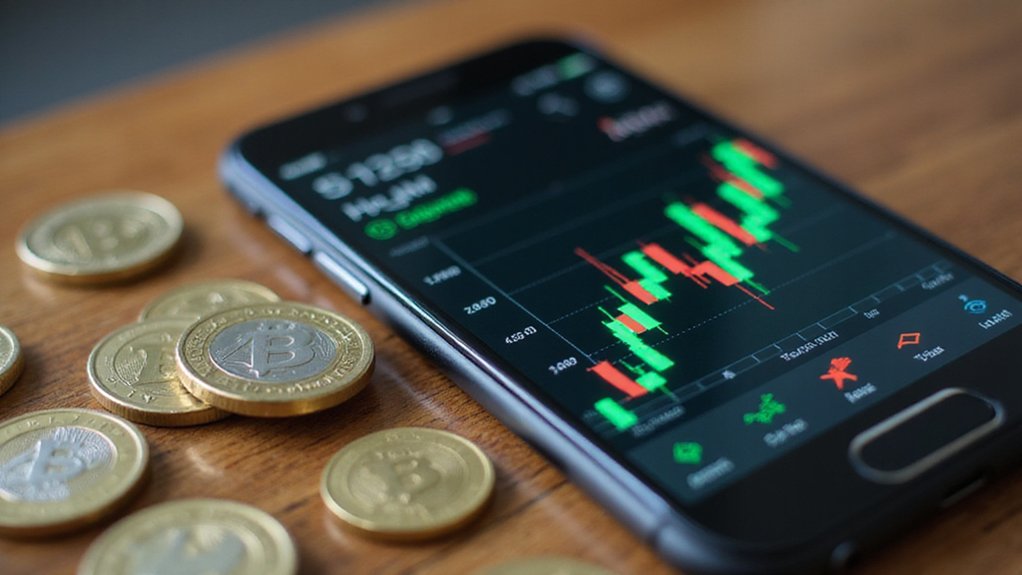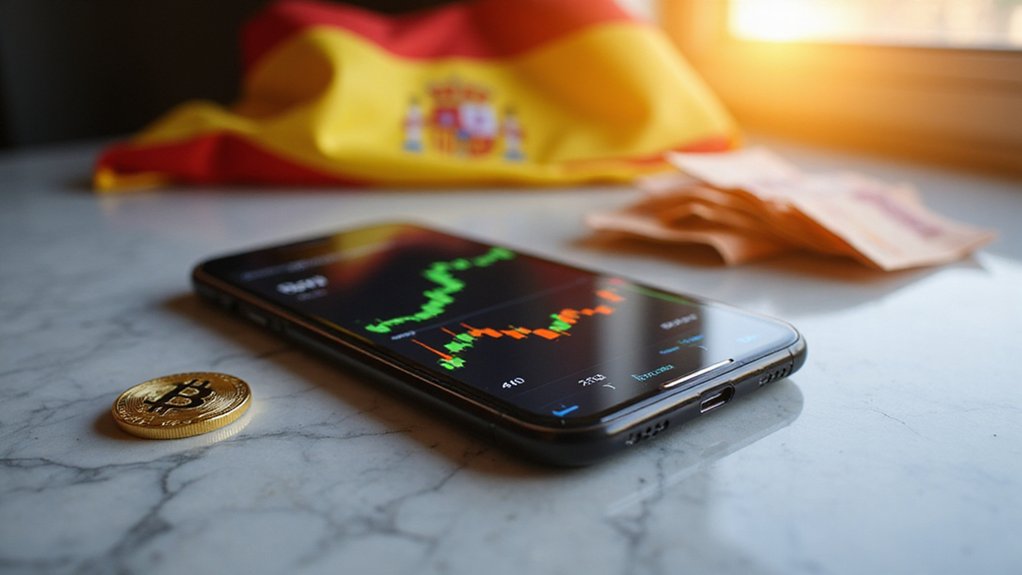Germany’s largest banking group, Sparkassen-Finanzgruppe, has announced plans to integrate cryptocurrency trading directly into its mobile banking application by summer 2026—a decision that would have seemed as likely as finding a Deutsche Bank executive enthusiastically endorsing negative interest rates just a few years ago.
A mainstream crypto breakthrough that would have been as unthinkable as German bankers embracing financial chaos just years ago.
This transformation affects approximately 50 million retail clients across more than 370 savings banks nationwide, representing the most significant mainstream crypto adoption initiative in German banking history. The irony is palpable: institutions that once treated Bitcoin with the enthusiasm typically reserved for unsolicited investment advice are now racing to capture market share in digital assets.
The EU’s Markets in Crypto-Assets (MiCA) regulation serves as the primary catalyst, providing the regulatory clarity that German banks demanded before venturing into what they previously considered the financial equivalent of extreme sports. Previous hesitation stemmed from concerns over volatility and regulatory uncertainty—reasonable positions that now appear quaint given the current institutional embrace of crypto markets.
S-Payment, Sparkassen’s internal payments specialist, leads the technical integration in cooperation with DekaBank, the group’s securities division. The architecture eliminates third-party exchanges and separate verification processes, allowing customers to buy, sell, and store cryptocurrencies within their familiar banking environment.
This approach targets retail investors who might find traditional crypto exchanges as navigable as German tax code. Initial offerings include Bitcoin and Ethereum, with potential expansion based on market demand—a cautious approach that reflects institutional risk management rather than the “everything-everywhere-all-at-once” philosophy of dedicated crypto platforms. This move aligns with broader market trends where institutional adoption is driving significant growth in the cryptocurrency sector.
The service aims to lower entry barriers for mainstream investors while maintaining the consumer protection standards that German banks pride themselves on. Competitive pressure accelerates this initiative, with Volksbanken and Raiffeisenbanken also introducing crypto services. The initiative notably reverses a decision from three years prior when crypto trading proposals faced initial rejection at the committee level.
Sparkassen’s retail focus distinguishes it from institutional-only models at other European banks, suggesting a cultural shift from cautious observation to active participation in digital asset markets.
Risk management remains paramount, addressing previous committee concerns about fraud, volatility, and investor protection through regulated infrastructure that leverages existing customer trust relationships—perhaps the most valuable asset in any banking operation.









